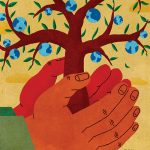cancer
March 5, 2025
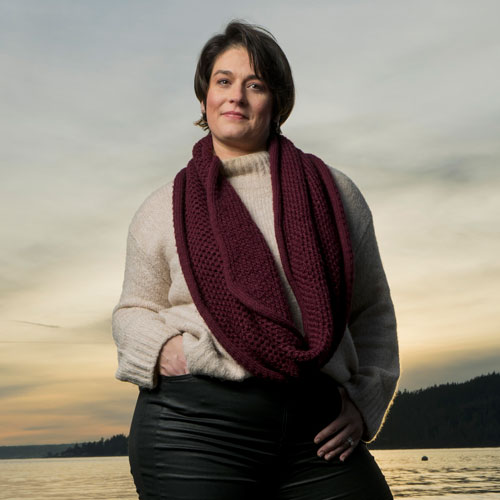
United vision
A new relationship between UW Medicine and Fred Hutch creates the UW’s nationally renowned adult cancer program.
September 13, 2024
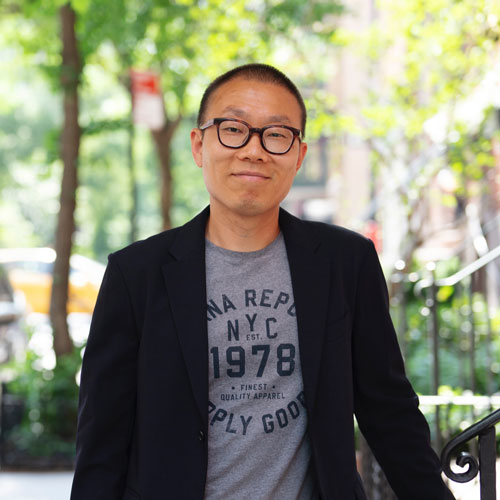
The comeback kid
Eason Yang, a designer and social innovator, is creating ways for cancer survivors to overcome bias and get back to work.
November 25, 2023
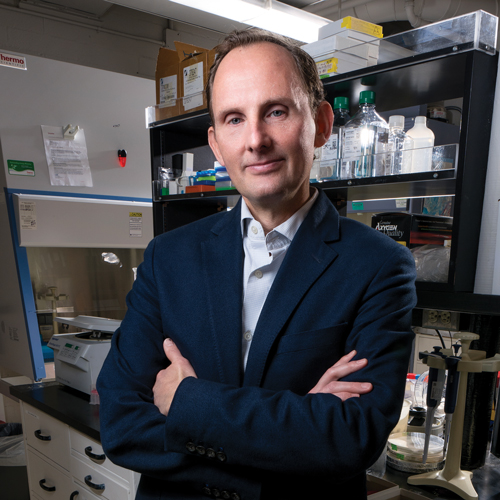
Probing a mystery
A UW center takes an innovative approach to solving one of medicine’s vexing problems: when organ transplants mysteriously lead to cancer.
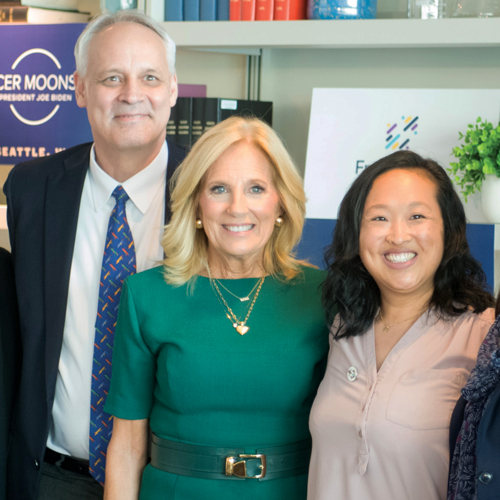
First lady visits
The first lady, Jill Biden, visited the Fred Hutchinson Cancer Center this fall, discussing the Biden Cancer Moonshot.
September 4, 2021
Fred Hutch, SCCA merging
Fred Hutchinson Cancer Research Center, UW Medicine, Seattle Cancer Care Alliance and Seattle Children’s are restructuring their relationship,.
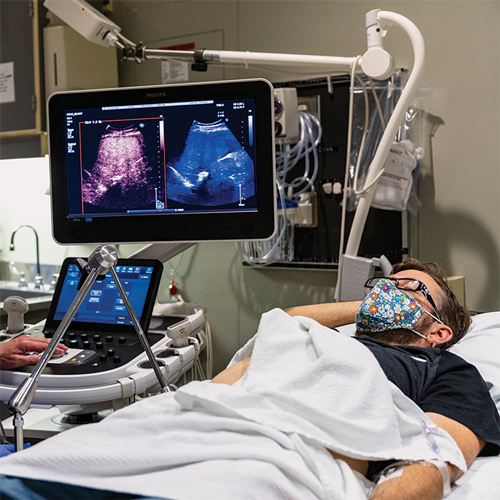
Hope and healing
A researcher combats cancer with the help of UW doctors and tools developed by his colleagues.
June 1, 2021
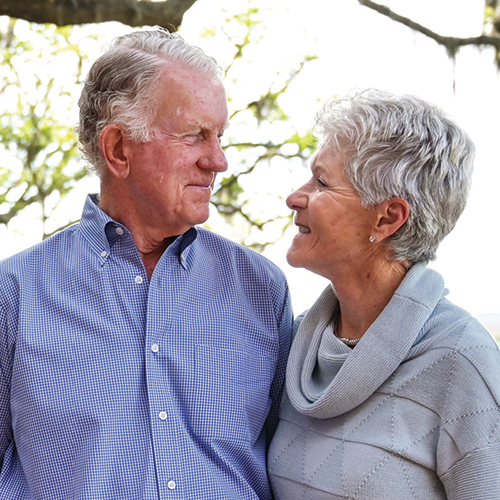
Speeding up the science
Curtis and Elizabeth Anderson lost their daughter to an uncommon form of cancer. Their philanthropy aims to expand research and bring hope to patients and their families.
September 21, 2020
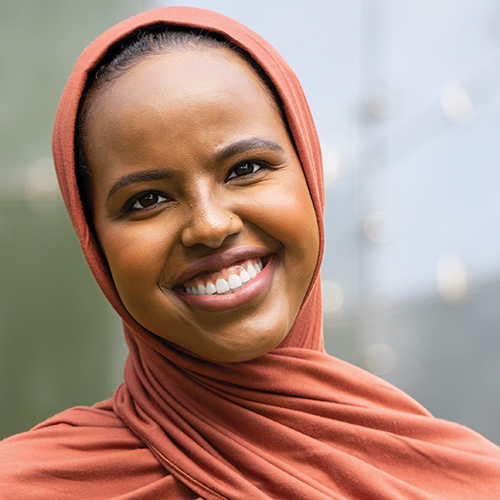
A twist of fate
Ayan Hassan’s life was changed by the Making Connections program—and then unexpectedly saved by one of the program’s founders.
March 1, 2017
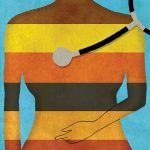
Cancer calamity
Disparities in health care access hit communities of color hard—particularly when it comes to cancer.
June 1, 2014
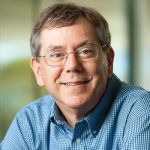
Life guard
Art Levinson, the driving force behind several cancer-fighting drugs, is the 2014 Alumnus Summa Laude Dignatus, the highest award bestowed upon UW alumni.
December 1, 2013
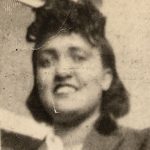
Immortal life
The cover of The Immortal Life of Henrietta Lacks succinctly proclaims the book’s storyline: “Doctors took her cells without asking. Those cells never died. They launched a medical revolution and a multimillion-dollar industry. More than 20 years later, her children found out. Their lives would never be the same.”
June 1, 2013
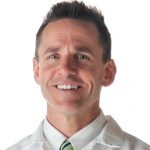
Moving mission
Catching up with Patrick Gallaher, ’95, founder of the School of Pharmacy’s Memorial Day weekend Border-to-Border relay race that for the past 18 years has raised money for cancer research in honor of his late father.
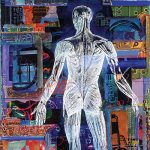
Probing DNA
The University of Washington Adult Medical Genetics Clinic is not only well-established—both UW and Johns Hopkins started the first genetics programs in 1957—but is widely considered the best in the world.
December 1, 2011
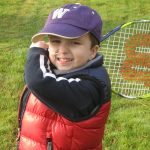
Ben's fund
Carin Towne, ’95, ’02, and her husband Jeff, ’95, have turned a personal tragedy into a ray of hope for parents of children with cancer.
June 1, 2011
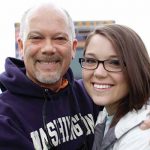
Pulling for Paul
While Paul Dann, ’83, of Richland, received cancer treatment at the UW Medical Center, his daughter Claire got busy and organized a Relay for Life team she named “Paul’s Pals.”
September 1, 2010
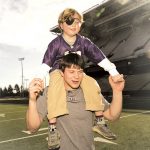
Beyond the gridiron
There is more to Jake Locker than just football. As he enters his final year at the UW and readies for a potentially lucrative career in the NFL, he remains a college student at heart.
September 1, 2009
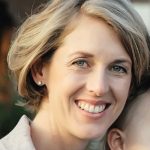
Gretchen Howison Whiting, 1968-2009
When Gretchen Howison Whiting, ’90, was diagnosed with stage III melanoma in 2004, she began a journey—not just to heal herself but to educate the public about the deadly disease, push for more funding for melanoma research, and continue to live her life to the fullest.
March 1, 2009
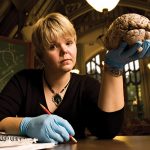
Knowing the enemy
A little more than 10 years ago, Kristin Swanson, a graduate student in applied mathematics at the UW, began work on an audacious project: an equation to model the growth and spread of brain tumors in individual patients.
December 1, 2006
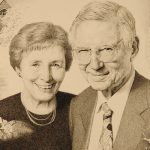
Legacy of giving
Moments after Ellsworth C. “Buster” and Nancy D. Alvord received the Gates Volunteer Service Award at the Fifth Annual Recognition Gala Sept. 8, the couple made a surprise announcement. They will help create a Center of Excellence for Neuro-oncology at the University by establishing with their family six new endowed faculty chairs.
